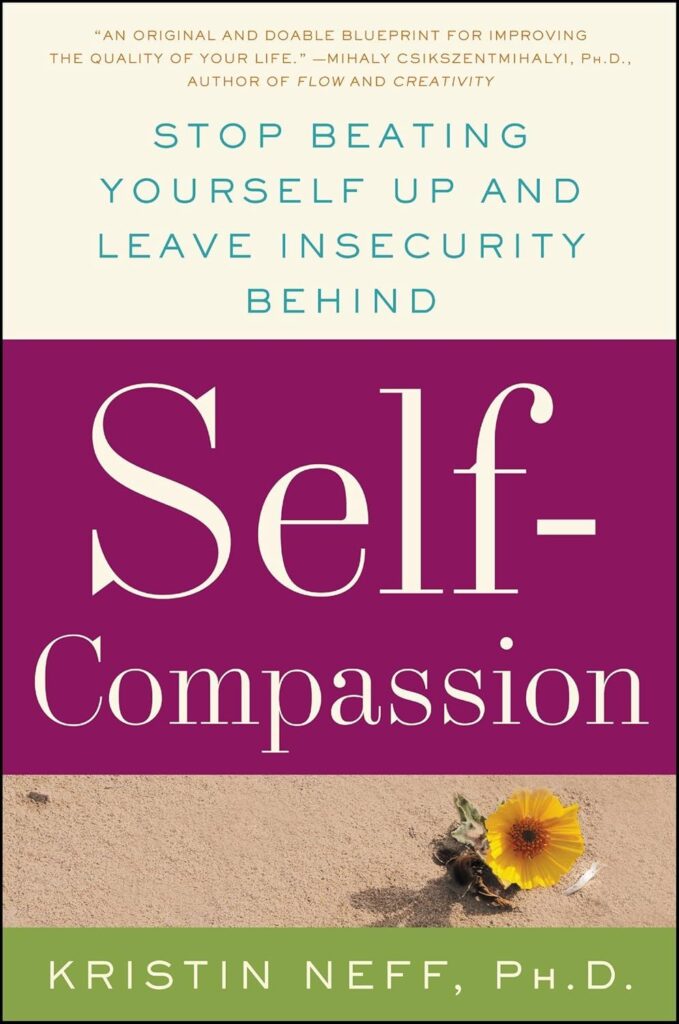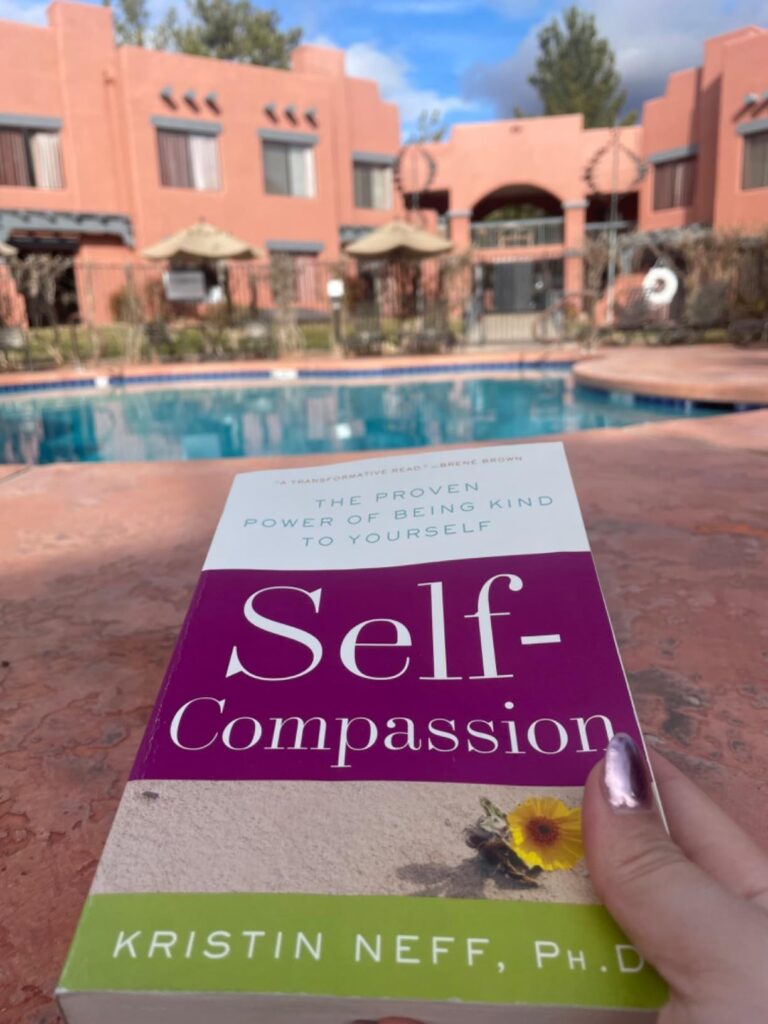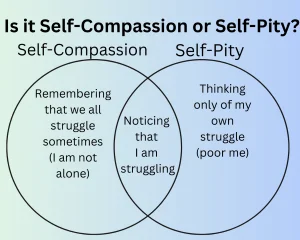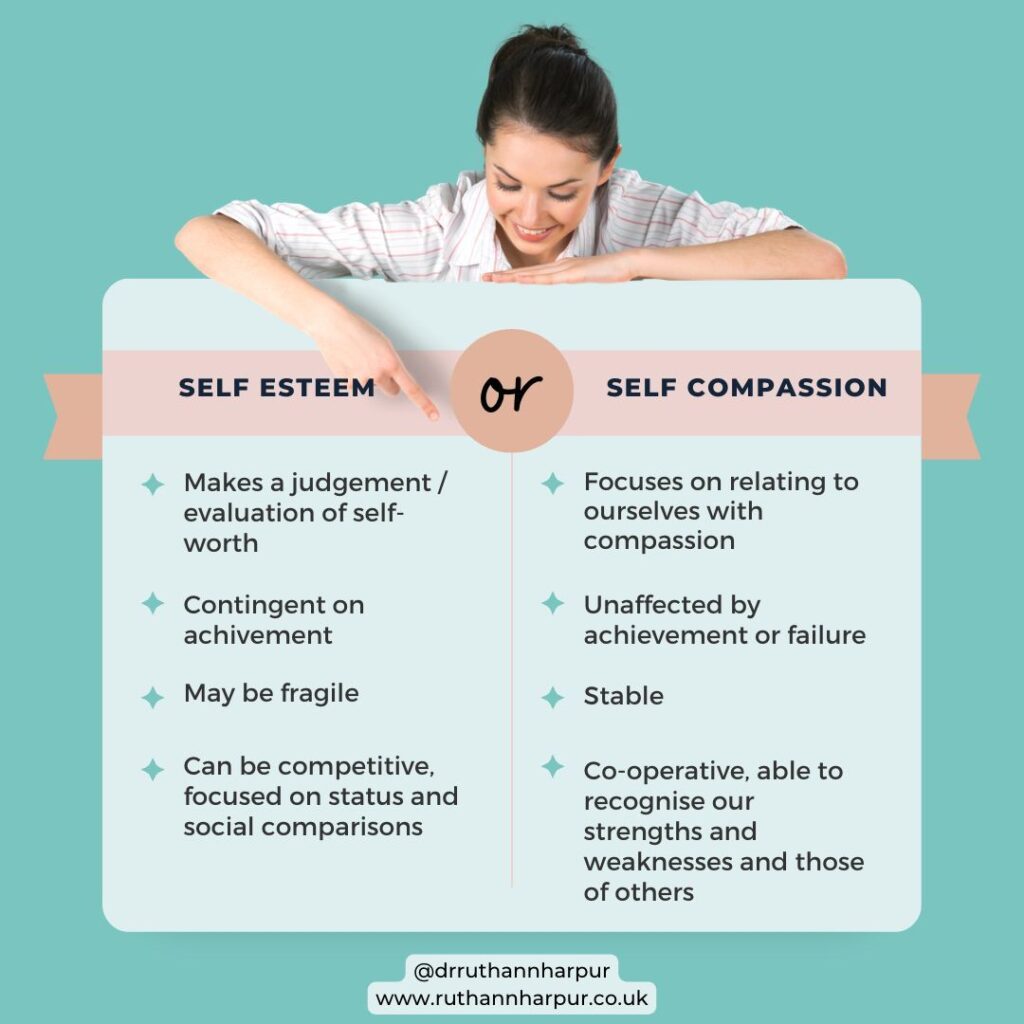Introduction: Why Self-Compassion Matters

Have you ever caught yourself saying things in your head that you would never say to someone you love? Maybe after making a mistake at work, forgetting an important task, or even looking in the mirror, the voice inside you starts criticizing, mocking, or reminding you of your failures. This inner critic often feels like it has your best interest in mind pushing you to do better or avoid mistakes but in reality, it slowly drains your confidence and joy. This is exactly why Self-Compassion by Kristin Neff feels like a revolutionary guide.
Instead of fueling our lives with self-criticism and the exhausting chase for perfection, Kristin Neff shows us that the true solution lies in treating ourselves with the same patience, empathy, and kindness we extend to a friend in pain. Many people search endlessly for answers on how to silence self-doubt and stop being so hard on themselves. The answer, as this book makes clear, is simple but powerful: learning the art of self-compassion. From the very beginning, Neff makes it clear that being kind to yourself isn’t weakness it’s strength.
What Self-Compassion Really Means
At the core of Self-Compassion by Kristin Neff lies a simple but life-changing definition: self-compassion is the practice of relating to yourself with kindness, understanding, and acceptance in moments of struggle. This may sound obvious, but for most of us, our instinct is the opposite. When we fall short, we don’t just acknowledge the mistake we punish ourselves with harsh words, shame, or unrealistic expectations.
Neff breaks self-compassion down into three essential components:

1. Self-Kindness instead of Self-Judgment – Rather than scolding yourself for every mistake, self-kindness invites you to comfort yourself the way you’d comfort a child who is learning. You treat errors as part of the journey, not evidence of failure.
2. Common Humanity instead of Isolation – Struggles and flaws are not unique to you. By remembering that imperfection is a universal human experience, you remove the sense of loneliness that often magnifies pain.
3. Mindfulness instead of Over-Identification – Painful emotions should neither be denied nor exaggerated. With mindfulness, you allow them to exist without letting them define your entire reality.
These three pillars form a foundation for a healthier way of living one where mistakes, disappointments, and challenges no longer feel like proof of inadequacy but rather opportunities for growth and connection.
The Destructive Cycle of Self-Criticism
One of the most eye-opening sections of Self-Compassion by Kristin Neff is her exploration of self-criticism. Most of us are raised to believe that criticizing ourselves is a form of discipline, a tool to keep us motivated and on track. But Neff’s research and personal insights show a very different reality.
Self-criticism does not make us stronger. Instead, it chips away at our resilience. It makes failure feel unbearable, fuels shame, and often paralyzes us from trying again. It’s like having an inner bully who follows you everywhere, whispering that you’re not good enough, smart enough, or capable enough. Over time, this voice doesn’t inspire it suffocates.
The alternative, Neff argues, is not blind positivity or ignoring your flaws. It is self-compassion. When you learn to respond to mistakes with understanding, you build inner safety. And with safety comes the courage to take risks, try again, and grow without fear of being crushed by your own judgment.
Read also : Quiet: The Power of Introverts in a World That Can’t Stop Talking
Self-Compassion in Daily Life
Reading Self-Compassion by Kristin Neff feels less like reading a psychology book and more like having a heart-to-heart conversation with someone who has lived through the same struggles you face. The book is full of examples of how self-compassion can be applied in everyday life.
When you fail at work or school, instead of drowning in embarrassment, you remind yourself: “Failure is not proof that I am worthless; it is part of learning, just like everyone else.”
When you compare yourself to others, you pause and realize that nobody’s life is as perfect as it looks from the outside. Self-compassion shifts your focus inward, reminding you that your journey is your own.
When you experience personal loss or deep emotional pain, you allow yourself to grieve, but you do so with the knowledge that pain is a thread woven through every human life, not a punishment meant only for you.
Through these shifts, life stops being an endless battle against your flaws and becomes a softer, more forgiving path toward growth.
Self-Pity vs. True Compassion

One of the biggest myths addressed in Self-Compassion by Kristin Neff is the idea that being compassionate with yourself is just self-pity. Neff carefully separates the two. Self-pity makes us feel trapped in our pain. It convinces us that no one else could possibly understand our struggles, which leads to isolation and bitterness.
Self-compassion, however, does the opposite. It connects us to the larger human story. When we practice self-compassion, we stop saying, “Why me?” and instead acknowledge, “Everyone suffers. This is what it means to be human.” That recognition transforms pain into connection, making it easier to carry.
How Self-Compassion Builds Resilience
One of the most empowering lessons in Self-Compassion by Kristin Neff is that self-compassion is not about being soft or letting yourself off the hook. It’s about building resilience the kind of strength that allows you to bounce back from setbacks without being broken by them.
Neff shares research that shows people who practice self-compassion are actually more motivated, healthier, and persistent. Why? Because they create a supportive inner environment. Imagine the difference between a teacher who encourages you warmly after a mistake versus one who constantly ridicules you. Which environment would help you learn better? Self-compassion creates the supportive teacher inside you.
This shift makes it easier to take risks, face failures, and continue striving for growth without being held hostage by fear of judgment.
Self-Compassion vs. Self-Esteem

The book also draws an important distinction between self-compassion and self-esteem. Our culture often promotes self-esteem as the ultimate goal feeling good about yourself by achieving success, being attractive, or receiving validation. But as Neff points out, self-esteem is fragile. It rises and falls depending on your performance or how you compare to others.
Self-compassion, on the other hand, does not depend on achievements or external approval. It says: “I am worthy of love and kindness simply because I am human.” This unconditional acceptance is far more stable than self-esteem. Instead of riding the roller coaster of external validation, you stand firmly on the ground of self-compassion.
Practical Ways to Practice Self-Compassion
In Self-Compassion by Kristin Neff, the author doesn’t just explain theory she gives readers concrete practices to make compassion a habit. Some of the most effective include:
Self-Compassion Breaks: During a stressful moment, pause and say to yourself: “This is hard. But suffering is part of life. May I be kind to myself in this moment.”
Loving-Kindness Meditation: Silently repeat phrases like, “May I be safe. May I be healthy. May I live with ease.” Over time, this practice softens the harsh edges of your inner dialogue.
Journaling with Kindness: Instead of writing about struggles with blame or shame, write as if you are comforting a friend. This reframes the way you view your own challenges.
These practices are simple but powerful. Done consistently, they change the way you relate to yourself, rewiring your inner dialogue into something gentler and more supportive.
Self-Compassion and Relationships
A beautiful insight in Self-Compassion by Kristin Neff is how our inner kindness extends outward. When we learn to treat ourselves with patience and empathy, we naturally become more patient, empathetic, and understanding with others. Relationships benefit because we are no longer demanding perfection from ourselves or the people we love.
Instead of reacting harshly when someone disappoints us, we begin to see their flaws through the same lens we’ve learned to apply to our own. This doesn’t mean tolerating harmful behavior, but it does mean creating deeper connections built on understanding rather than judgment.
About the Author: Kristin Neff
Kristin Neff is not only the author of Self-Compassion, but also one of the world’s leading researchers on the subject. She is an Associate Professor of Educational Psychology at the University of Texas at Austin, where she has dedicated much of her academic career to studying how self-compassion impacts mental health, resilience, and overall well-being.

Her work is deeply personal. Neff’s journey into the world of self-compassion began not just from intellectual curiosity but also from her own struggles and life challenges. She openly shares that the practice of self-compassion helped her cope with moments of uncertainty, hardship, and pain. This personal connection gives her writing an authenticity that readers immediately feel she is not speaking from a distant academic perspective, but from lived experience.
Neff has also co-developed the Mindful Self-Compassion (MSC) training program, alongside psychologist Christopher Germer. This program has been taught worldwide, helping thousands of people cultivate greater kindness toward themselves. Beyond academic research, she is a speaker, author, and advocate for shifting cultural perspectives on how we treat ourselves.
Through her books, talks, and workshops, Kristin Neff continues to spread the message that being gentle with ourselves is not indulgence it’s a necessary foundation for resilience, courage, and emotional healing.
Ready to Transform Your Inner Dialogue?
Self-Compassion by Kristin Neff is more than a book it’s a gentle guide that helps you replace harsh self-criticism with kindness and resilience. Whether you read it, listen to it, or keep it by your side, this book can become a trusted companion on your journey to a more balanced and compassionate life.
Final Thoughts: Why This Book Matters
Ultimately, Self-Compassion by Kristin Neff is not just a book it is an invitation to change the way you live. It challenges the destructive myths of perfectionism, constant self-criticism, and fragile self-esteem, and replaces them with a kinder, more resilient way of being.
If you’ve ever struggled with an inner critic that never seems satisfied, or felt trapped by shame and self-doubt, this book offers a way out. Self-compassion is not about excusing mistakes it’s about meeting them with the courage to keep moving forward.
You may also llike: Best Confidence Building Books for Introverts: 8 Unlocking Quiet Strength
Conclusion
The most important lesson from Self-Compassion by Kristin Neff is that you deserve the same compassion you offer to others. Life is hard for everyone, and mistakes, failures, and pain are not signs of weakness but reminders of our shared humanity. When you shift from self-judgment to self-compassion, everything changes: your confidence grows, your resilience strengthens, and your relationships deepen.
The truth is simple: the voice you hear most in your life is your own. And when that voice becomes kind, supportive, and compassionate, healing begins.
Frequently Asked Questions About Self-Compassion by Kristin Neff
1. Is self-compassion the same as being lazy or letting yourself off the hook?
No. In Self-Compassion by Kristin Neff, the author makes it clear that self-compassion is not about avoiding responsibility. It’s about creating an inner environment where you can acknowledge mistakes, learn from them, and grow without fear of self-punishment. Far from laziness, self-compassion actually strengthens motivation because you feel safe enough to keep trying.
2. How is self-compassion different from self-esteem?
Self-esteem is often based on comparison, achievement, or feeling “better than” others. It fluctuates depending on circumstances. Self-compassion, on the other hand, is unconditional. It means valuing yourself regardless of success or failure, knowing that your worth is not defined by external approval.
3. Can self-compassion really reduce stress and anxiety?
Yes. Research presented in Self-Compassion by Kristin Neff shows that people who practice self-compassion experience lower levels of anxiety, depression, and stress. This happens because self-compassion reduces the constant pressure of perfectionism and replaces it with acceptance and emotional balance.
4. Isn’t self-compassion the same as self-pity?
Not at all. Self-pity keeps you stuck in your struggles and makes you feel isolated. Self-compassion reminds you that suffering is a shared human experience, connecting you to others instead of separating you.
5. How can I start practicing self-compassion today?
Start small. When you notice negative self-talk, pause and ask yourself: “If a friend were in this situation, what would I say to them?” Then, speak those same words to yourself. Over time, these small moments of kindness build a stronger habit of self-compassion.
